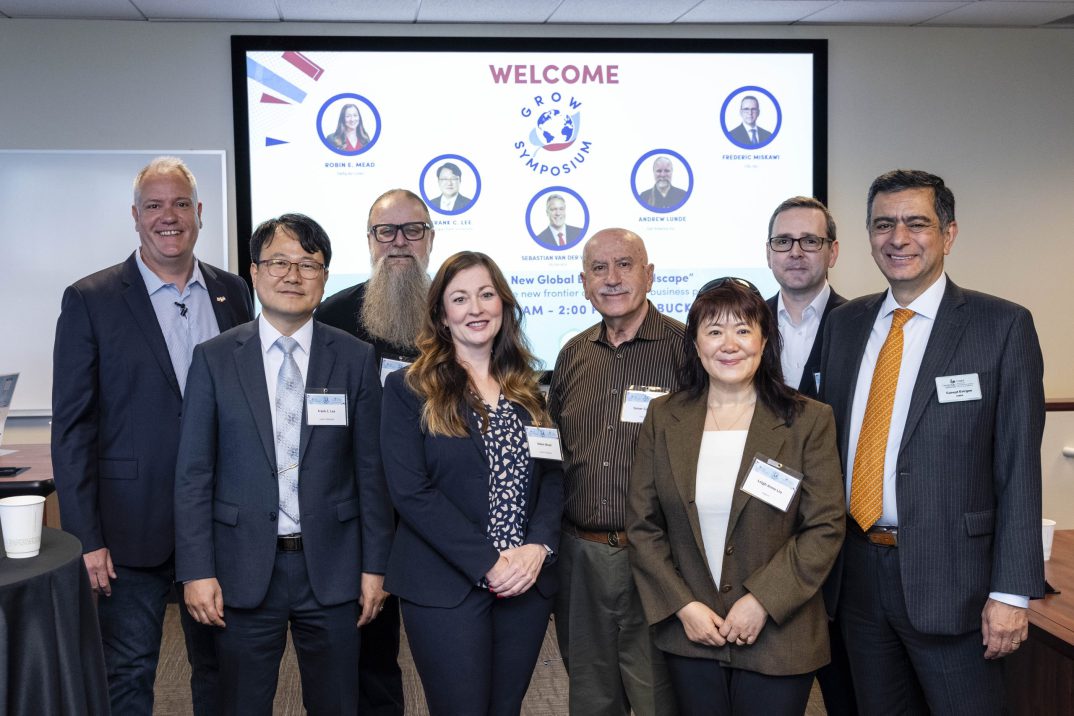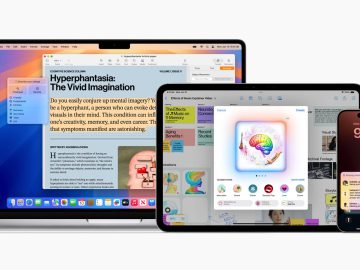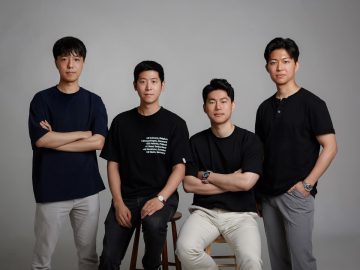Editor’s note: This article is contributed by GSU-CIBER as part of its annual partnership with Global Atlanta.
What is the burning issue at the heart of almost every recent international business discussion? The impact of artificial intelligence (AI).
The ethics involved in applying AI to international business practices, plus the ways that academia can prepare a future generation of leaders to harness AI’s power in responsible ways, was, fittingly, the topic of Georgia State University (GSU)’s recent GROW (Globally Responsible Organization and Work) Symposium.
Now in its third year, GROW is a cornerstone event for academic and practical business discussions on global sustainability, inclusion and responsible business practices.
The 2024 event, spearheaded by Leigh Anne Liu, professor and director of the GSU Institute of International Business (IIB) and Cuneyt Evirgen, faculty director of GSU Center for International Business Education and Research (CIBER), and moderated by Sebastian van der Vegt, partner at WBMV Consulting and president of the Netherlands American Chamber of Commerce of the Southeastern United States, brought together a diverse group of experts from different countries, disciplines and backgrounds to explore the ethical implications and transformative potential of AI in international business.
Diverse Perspectives on AI Ethics
The decision for the 2024 GROW symposium to focus on AI was driven by the topic’s relevance and urgency for international business and education.
“AI is on everyone’s mind,” Dr. Liu notes. “It’s a timely topic that needs to be addressed, especially from the perspective of ethics in global business.”
The symposium featured a panel of distinguished speakers, who offered insights into the ethical dimensions of AI. They included:
- Frederic Miskawi, vice president of the Global AI Center of Expertise at CGI Inc., highlighted the disruptive potential of AI, like when companies are advised to eliminate entire divisions in favor of AI-driven processes. This topic raises ethical questions about job displacement and how to prepare students for a changing job market.
- Robin E. Mead, director of operations analytics at Delta Air Lines, explored the implications of AI on workforce dynamics and the evolving nature of roles in business.
- Frank C. Lee, clinical associate professor and business analytics coordinator at GSU, emphasized the transformative impact of AI on classroom education. According to Dr. Lee, AI now performs coding tasks in minutes that previously took students hours, shifting the focus toward presentation skills and strategic approaches.
- Andrew Lunde, solution architect for partner AI strategy at SAP, discussed the practical applications of AI for optimizing business operations while balancing environmental and social impacts.
Panelists and participants engaged in compelling discussions on the ethics involved in these topics. The concept of AI possibly replacing significant portions of the workforce was particularly thought-provoking, Mr. van der Vegt notes. He adds that a lively discussion addressed the ethical considerations for how academia can adapt to prepare students for these changes.
Dr. Liu emphasizes that the conversation is ongoing, with no definitive answers yet. “It’s about fundamentally modifying our university programs and formats to ensure students are competitive in the global job market,” she says.
GSU’s approach includes integrating AI into their curriculum, not just from a technical standpoint, but also considering cultural, social and ethical issues, she notes.
The Broader Impact
Attendees left the GROW symposium with a deeper understanding of the complex relationship between AI and responsible business, Mr. van der Vegt says. The discussions illuminated how AI could streamline processes and enhance efficiency, but they also underscored the importance of addressing the social impact of AI and emphasizing uniquely human skills in both education and business, he adds.
The GROW Symposium is part of a broader initiative under the GROW umbrella at GSU’s IIB, which includes scholarships, service-learning projects and research focused on global sustainability and inclusion.
“GROW is about community engagement. It’s an event where students, alumni, faculty and various stakeholders come together to discuss and promote responsible global business practices,” Dr. Liu explains. This philosophy extends beyond the symposium to all aspects of GSU’s international business programs and initiatives, she adds.
GROW honors an alumnus every year who has most embodied the principles of sustainability and inclusive practices in their research or work. This year’s honoree was Melanie Larkins, director of sustainability services at Accenture, whose work focuses on best practices in the application of ESG (environmental, social governance) principles and generative AI technologies to future-proof global organizations.
Looking ahead, Dr. Liu envisions GSU as a global leader in responsible business education. By addressing critical subjects like the integration of AI into business practices, GSU’s GROW Symposium and its associated projects play a crucial role in shaping future dialogue and innovation in international business education and practice, she says.
The topic of the 2025 GROW symposium to be held next Spring has not yet been selected. But next steps include expanding corporate partnerships and exploring new formats for engagement to ensure the event remains dynamic and relevant, Dr. Liu asserts.
Atlanta’s international business community can suggest topics and apply to participate or be a speaker for the next event by contacting Dr. Liu at laliu@gsu.edu or Dr. Evirgen at tevirgen@gsu.edu.
For more insights from the GROW Symposium and updates on future events, visit





